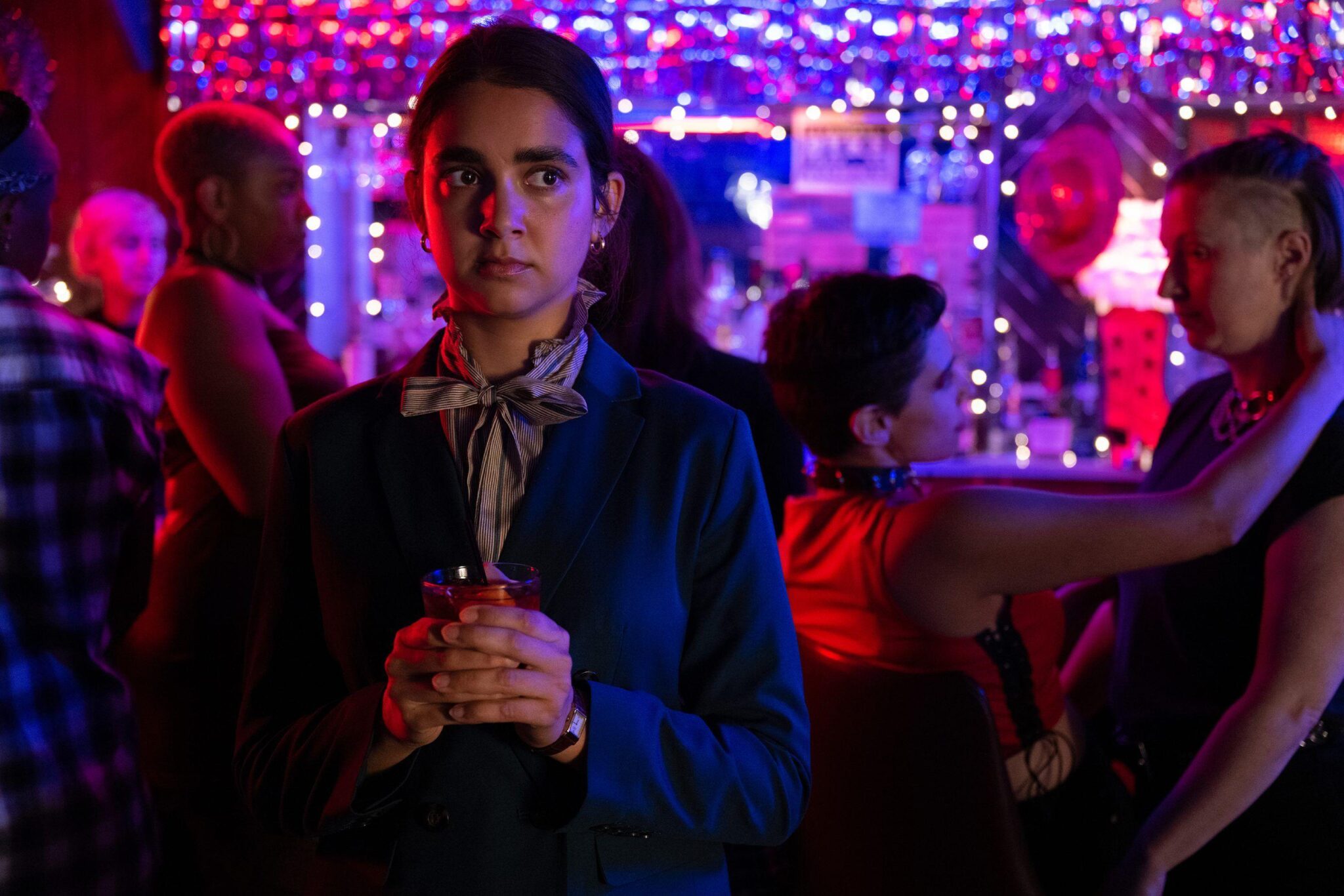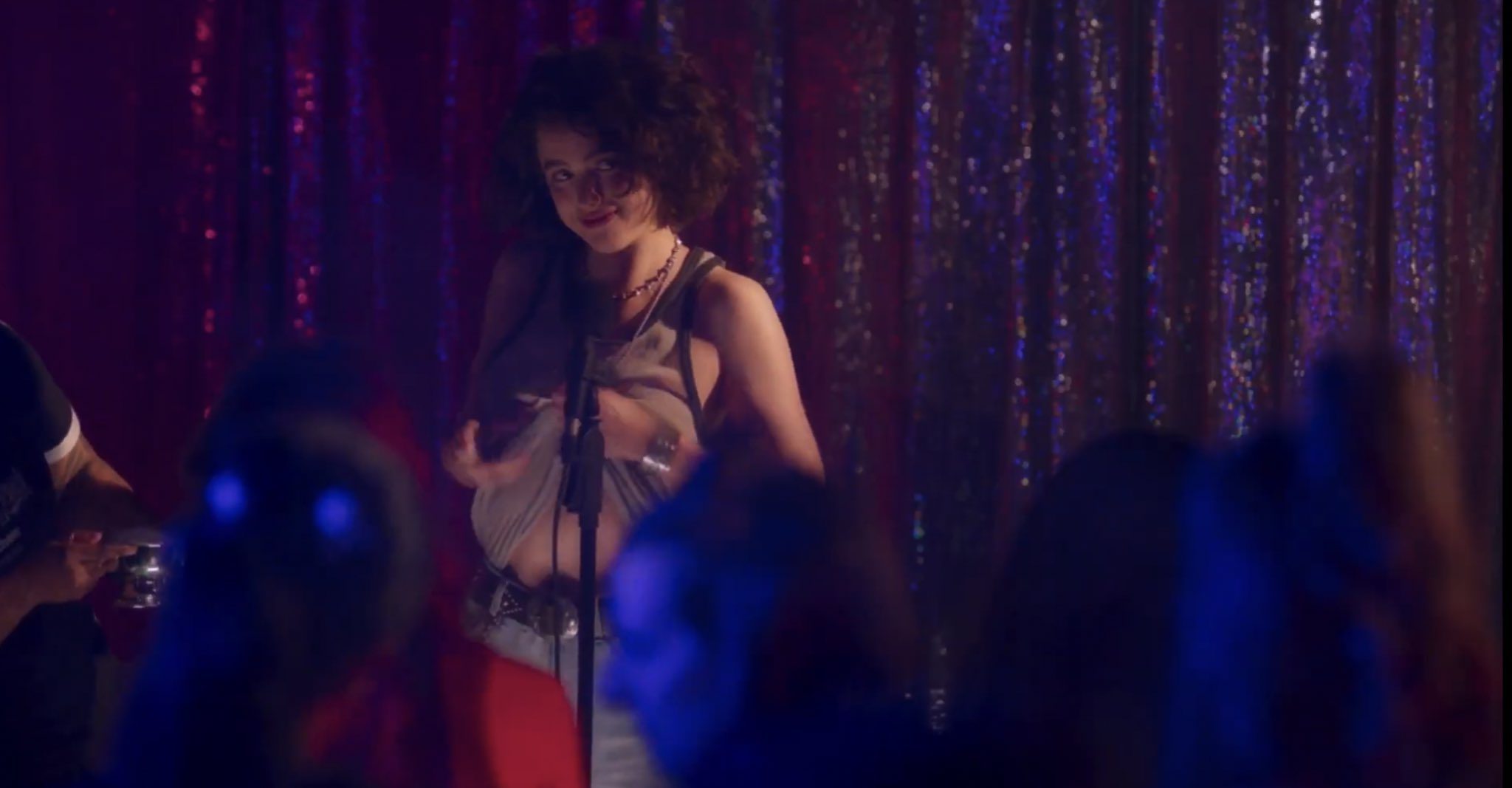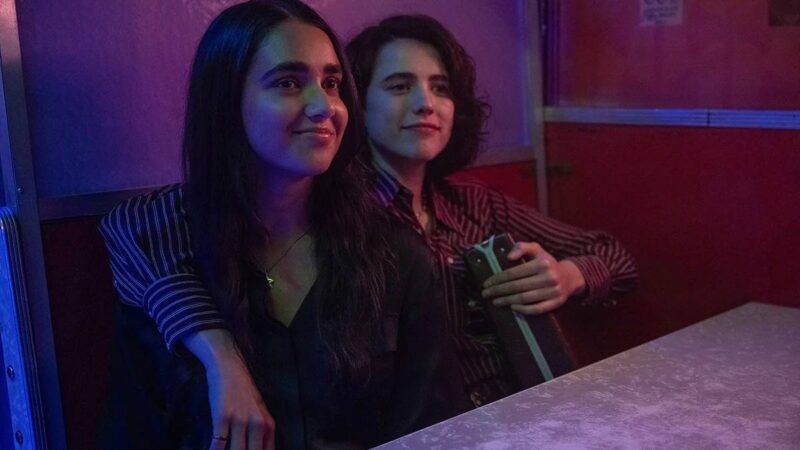I have a particular affinity for movies that strive for that rarified adjective of trashy. Even more so for movies that go the unnecessary step further and embrace their grammatical brethren of sleaze. So, while Ethan Coen’s Drive-Away Dolls may not be the trashiest, and I’d hardly call it sleazy, it’ll do for 2024.
It’s fascinating to see the Coen Brothers strike out onto vastly different paths with their wives. In 2021, Joel Coen made The Tragedy of Macbeth with his wife, Frances McDormand, as the infamous Lady Macbeth and modern screen icon Denzel Washington in the lead. Ethan Coen went in a decidedly kookier, gayer, and freewheeling direction with his wife Tricia Cooke for Drive-Away Dolls. Of the two, I think I like Ethan more.

Drive-Away Dolls has the twin inspirations of the shlock that used to play in drive-in movie theaters and culled from the memories of Cooke’s queer youth. The result is a hoot and a half where characters extemporize and quip their way through madcap situations, go lesbian dive bar hopping, blackmail politicians, and hope to avoid good taste at all costs.
It’s impossible to watch Drive-Away Dolls and not be awash in sense memories of Raising Arizona and The Big Lebowski, both in style and vibes. The way characters talk, the distinct exaggerated drawl of Margaret Qualley’s Jamie, a chaotic lesbian with a Foghorn Leghorn-sized libido, recalls the stylized way the characters spoke in Raising Arizona. Much like in The Big Lebowski, the characters refuse to confine themselves to a plot or story as they careen through the world, getting distracted by every attractive woman passing them by, much to the dismay of Marian (Geraldine Viswanathan).

Drive-Away Dolls is a cheerfully reckless and horny movie steeped in personal experiences while also refreshingly Queer for a mainstream film. Coen and Cooke co-wrote the script, with Cooke using her personal experiences to inform the events and Coen using his love of old B-movie classics to set the tone. The result is a cinematic lark where characters ignore plot contrivances to get laid.
The excuse Coen and Cooke give for the movie involves the classic contrivance of a “lost and found item,” a favorite of mine. In this case, it’s a suitcase ending in Jamie and Marian’s car, which they borrowed from Curlie’s (Bill Camp) Drive-Away company. I call it an excuse because while the movie occasionally returns to this thread, the real zest is in Jamie trying to coax Marian out of her granite-like shell while Marian tries to get her sit still.
Never mind that the mob and their middlemen, led by Colan Domingo’s Chief, in a charmingly silky and slimy turn, have mistakenly given the wrong people the merchandise. I will not say what the merchandise is. But I cackled and howled upon its reveal. Also, Curlie is innocent.
Both ladies need a vacation. Jamie, a local lesbian stud whose partner is a short-tempered cop, Sukie (Beanie Feldstein), has kicked her out of their apartment for cheating one too many times. Wound too-tight Marian wants to get away and visit her aunt in Tallahassee. Drive-Away Dolls isn’t about grand themes so much as about two lesbians who feel like taking a road trip and the shenanigans they get into.
Qualley’s Jamie strolls about eyeing every woman she meets as a potential sexual partner, dressed like a horned-up Cowboy in her denim jeans, sleeveless vets and boots. She hooks her thumb in her belt loops and leers at passers-by. A hellion, her quick thinking is borne more out of survival from the scrapes she gets herself into than from any street smarts.
This starkly contrasts Viswanathan’s Marian, who spends much of Drive Away Dolls dressed like Granny from the Tweety Bird cartoons. Marian lugs around her treasured Henry James and spends time figuring out how to get away and read instead of being a hellion. She’s a stern taskmaster who cannot suffer fools but suffers Jaime because, despite their differences, they get each other. Marian isn’t as loquacious, outgoing, or as sexually active; it’s been four years since she’s had sex. A fact that sends Jamie on a quest to get her best friend laid, even while they are tasked with getting their car to Tallahassee by a specific time and date.
But what does that matter if there’s sex to be had?
Coen and Cooke use Ari Wegenr’s lens to cloak the scenes of Drive-Away Dolls with neon club lights and stark natural lighting, giving a sense of heightened reality. But more than the style, they use Wegner’s camera to try to capture a time and a place, both physically and emotionally. They even have psychedelic transitions between scenes with Miley Cyrus as a flower child riding a mystery man. The gag is less about how it’s a throwback to the old drive-in days in how movies would try to pad out their run time and more about how it cleverly ties in with the plot of Drive-Away Dolls.

There are acres of movies exploring the sexuality of boys and men. Just as there are many movies-though not quite as many explore the sexuality of girls and women. However, Drive-Away Dolls aim to do so with a frank and impish smirk. Coen and Cooke delight in framing scenes to ensure dildoes are prominently in the foreground.
After being arrested, Marian lies in her cell, recalling her childhood. Wegner’s camera shows us a young girl on a trampoline. Soon, it’s revealed there’s a white picket fence next to the trampoline. Then Coen, Cooke, and Wegener show us Mariaon’s point of view, and we get a glimpse of her next-door neighbor sunbathing in the nude.
Yes, it’s the naked body of an older woman that grabs her attention. But what stands out to Marion are the woman’s bright red cowboy boots. The bright colors and bold contrast to the nude woman hint at the repressed feelings about why Marian puts up with Jaime. She’s every bit as beautiful and intoxicating as a pair of bright red cowboy boots.
The scene is funny, but the yearning behind it resonates. Everyone has a moment in their childhood when they start to become fascinated with sex, and it seldom waits until we are eighteen. A first Playboy, or the first time you saw a movie with nudity, holds a place in your memories for a staggeringly long period.
We live in a generation raised on the supremacy of the four-quadrant movie. In other words, films for everyone often mean a film for no one. But what we’ve lost in film for the whole family is the joy of specificity that often breeds relatablity.
The flashback also shows that Marion and Jamie might not be that different beneath their exteriors. One of my favorite aspects of Drive-Away Dolls is how Coen and Cooke went down the trickier path of odd-couple friends to odd-couple lovers instead of doing the age-old path of enemies to lovers. Opposites attract, and cinema is all about contrasts, but it’s not as easy as it looks. Coen and Cooke pull it off.
Viswanathan and Qualley have an endearing chemistry together. The duo are like Martin and Lewis, if Martin and Lewis fucked. The straight-laced Marian and Jamie, the wild monkey, that cannot be tamed. The mismatched duo goes up against the mob and its henchmen, Arliss (Joey Slotnick) and French (C.J. Wilson), and conservative politicians, all while just trying to have a good time. The two may get on each other nerves, but they can’t help but rub against each other in all the right ways.
Coen and Cooke pace Drive-Away Dolls with a looseness that belies its brisk eighty-minute runtime. At times, perhaps a little too loose, I couldn’t help but be charmed by the cinematic caper. The way the characters had so little concern about the situation is a springy reprieve from the melodrama so often churned out of Hollywood nowadays.
Concerns about things like: Why is the severed head of Pedro Pascal in their trunk? We know, kind of. It’s never even explained who or why Pascal’s Santos was decapitated. We see the beheading of Santos, and it’s a cheerfully bonkers way to open the film, but Drive-Away Dolls is more concerned with vibes, lesbian sex, and boobs than it is anything else.
Plotcels might gnash their teeth; lore hunters will starve looking for scraps of a more expansive universe, all the while wondering why the two leads stopped for a basement kissing party with the local softball team.
Lol, losers.
Images courtesy of Focus Features
Have strong thoughts about this piece you need to share? Or maybe there’s something else on your mind you’re wanting to talk about with fellow Fandomentals? Head on over to our Community server to join in the conversation!

